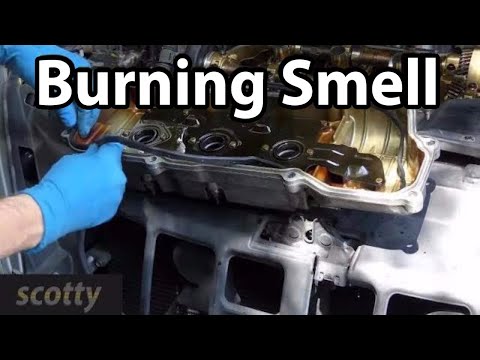The smell of burning oil indicates a serious problem with your vehicle. But being aware of the symptoms and rapidly identifying the issues can help you out in this case.
So, you may ask now, “why does my car smell like burning oil”? You smell it because the Oil leaks come in contact with hot engine parts and start to burn. Also, oil outflow into the exhaust system and worn-out engine parts can result in oil leaks and burn-off.
However, in this article, we’ll take a deep dive into the most common causes of burning oils. Then we will explore what you can do to get rid of the smell and keep your car running smoothly. So buckle up and let’s get started!
Why Does My Car Smell Like Burning Oil?
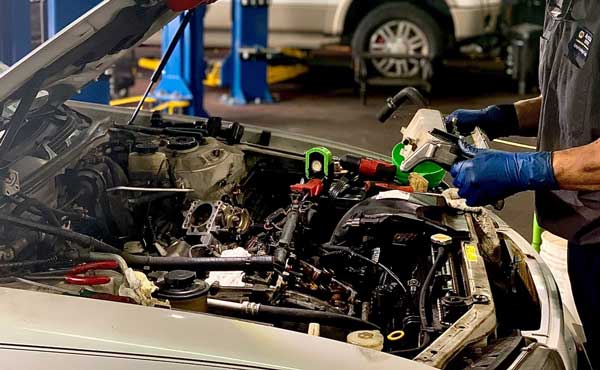
A burning oil smell in your car can be caused by a variety of factors below.
Oil Leakage
One of the most common causes of a burning oil smell in your car is a leak. If oil is leaking from your engine, it can drip onto hot parts and create a burning smell. This could be a sign of a serious problem, such as a cracked engine block or a faulty oil filter.
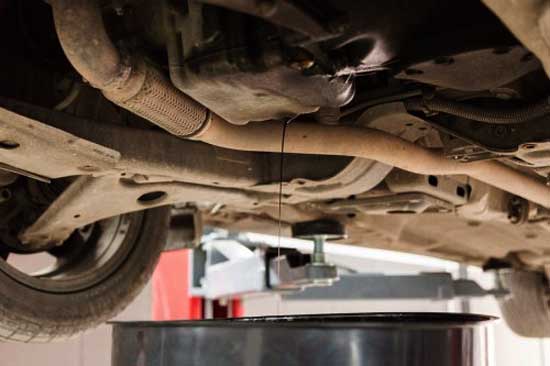
Oil Inflow In The Exhaust System
Another possible cause of a burning oil smell in your car is oil getting into the exhaust system. This can happen if the oil level is too high or if the oil is not being properly filtered. The oil can then get into the exhaust and burn, creating a strong smell.
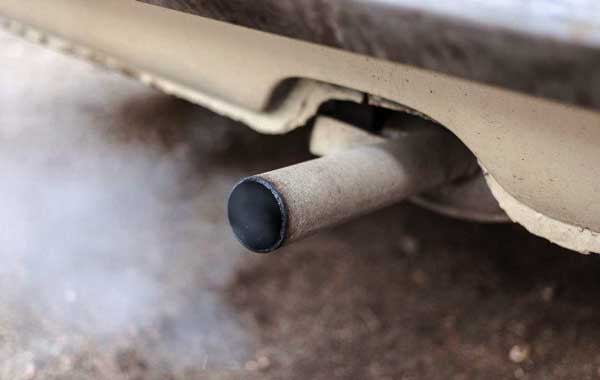
Old, Dirty Or Low Oil
In some cases, the cause of the burning oil smell may be as simple as needing an oil change. If your oil is dirty or low, it can create a burning smell. The moving parts in your car function smoothly when it is well-lubricated.
However, when the oil in your car is dirty or low, it won’t lubricate properly, hence causing the parts to grind against one another. The resultant effect of this is friction which induces a burning oil smell.
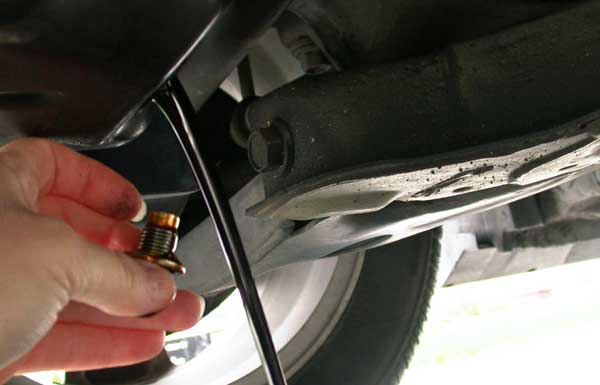
Malfunctioning Oil Pressure Sensor
Another possible reason for a burning oil smell is a malfunctioning oil pressure sensor. A malfunctioning oil pressure sensor can cause a burning oil smell if it indicates a false low oil pressure reading. This can cause the engine to pump more oil than necessary, resulting in oil overflowing and leaking onto hot engine parts, creating a burning smell.
Additionally, if the oil pressure sensor is not working properly, it may not alert the driver to an actual low oil pressure situation. Thereby causing the engine to run without proper lubrication, and potentially leading to overheating and the burning smell of oil.
Adding Too Much Oil To Your Car
The excess can be slung onto hot engine parts, such as the exhaust manifold or catalytic converter. This can create an unpleasant burning odor. Additionally, overfilling the oil can also lead to oil leaks, which can cause damage to other parts of your engine.
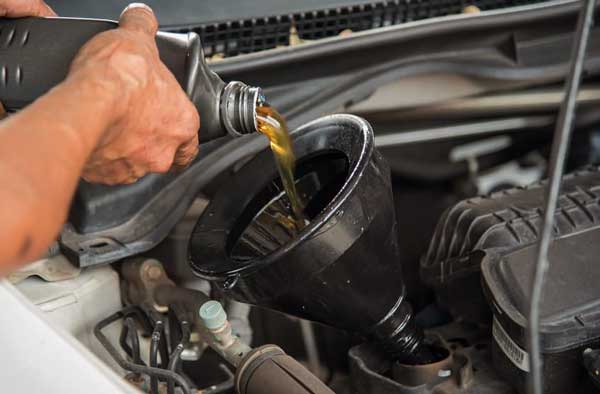
Oil On The Exhaust Manifold
If oil is getting onto the exhaust manifold, it can create a burning smell. This can be caused by a damaged valve cover gasket, a failed oil cooler, or a damaged oil filter adapter.
Worn-out Engine Parts
As parts like the valve stem seals and piston rings wear out, they can start to leak oil. This oil can then burn off and create a noticeable burning smell.
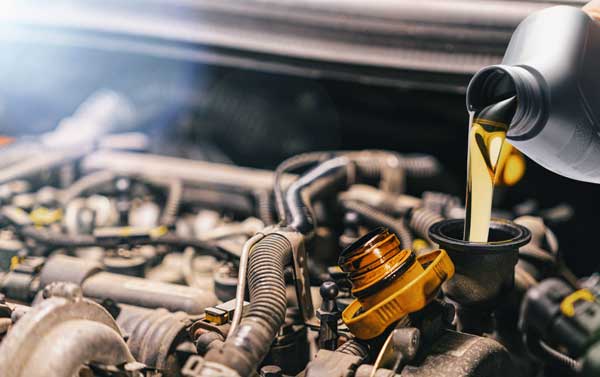
Oil Consumption
Another common cause of a burning oil smell in your car is oil consumption. This can happen when your car is consuming more oil than normal. And it is caused by a variety of issues, including worn piston rings, valve seals, or a damaged valve guide.
In addition to these causes, a burning oil smell can also be caused by some other issues, such as a clogged oil filter, a failing oil pressure sensor, or even a problem with the car’s exhaust system.
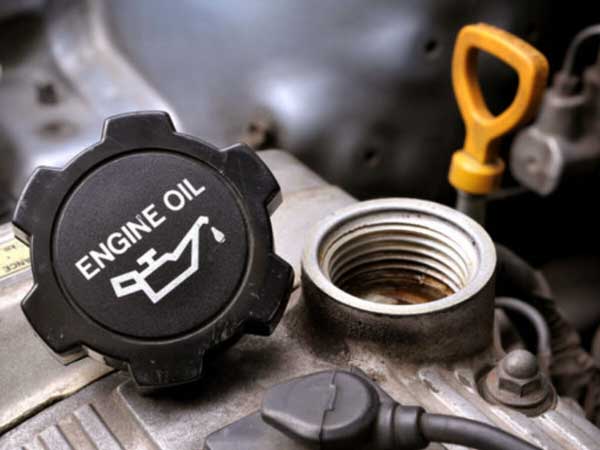
Signs And Symptoms Of Burning Oil Smell From The Car
Some common signs and symptoms of a burning oil smell from a car include:
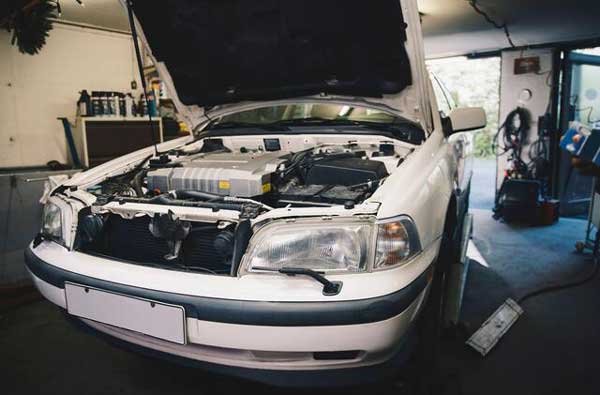
- A strong, persistent oil smell coming from the engine compartment
- Smoke or steam coming from the engine or exhaust
- Warning lights or messages on the dashboard, such as the “check engine” or “low oil pressure” light
- Reduced engine performance or power
- Dark, dirty exhaust smoke
- Oil leaks or drips under the car
- A decrease in the oil level on the dipstick
How To Fix The Burning Oil Smell In The Car?
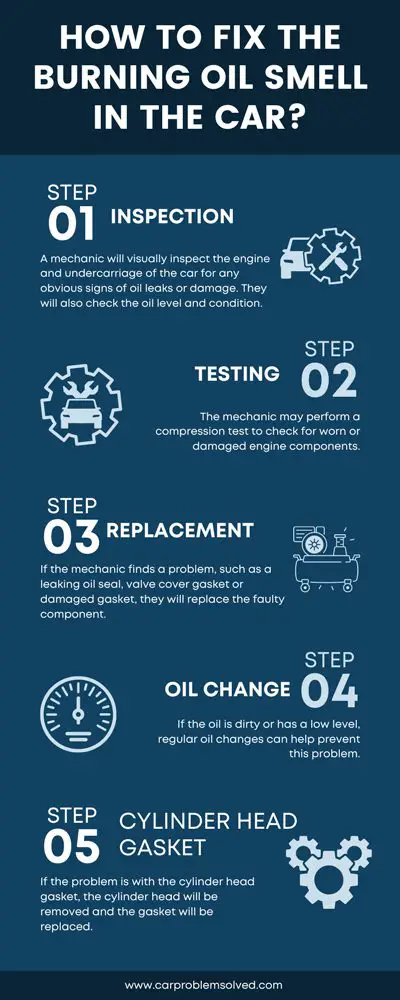
Fixing the burning oil smell in a car typically involves identifying and addressing the underlying cause of the problem. Here are a few common steps a mechanic may take to diagnose and fix a burning oil smell in a car:
Step 1. Inspection
A mechanic will visually inspect the engine and undercarriage of the car for any obvious signs of oil leaks or damage. They will also check the oil level and condition.
Step 2. Testing
The mechanic may perform a compression test to check for worn or damaged engine components.

Step 3. Replacement
If the mechanic finds a problem, such as a leaking oil seal, valve cover gasket or damaged gasket, they will replace the faulty component.
Step 4. Oil Change
If the oil is dirty or has a low level, regular oil changes can help prevent this problem.
Step 5. Cylinder Head Gasket
If the problem is with the cylinder head gasket, the cylinder head will be removed and the gasket will be replaced.
Also, if you suspect that your car is consuming more oil than normal, it’s important to have it checked out by a professional mechanic. You can also watch this video to learn how to fix the burning oil smell in your vehicle.
How To Prevent Burning Oil Smell In The Car
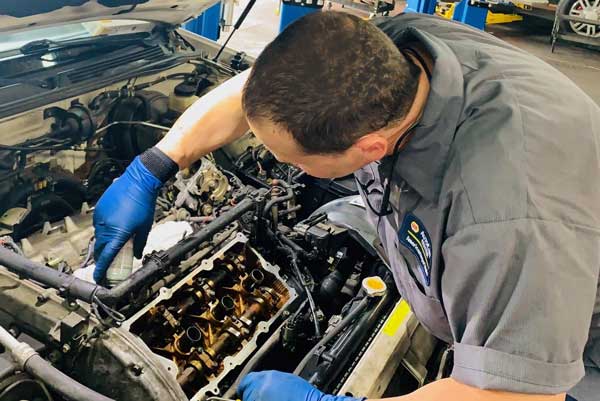
Here are a few tips you can take to prevent the burning oil smell in your car:
Regular Oil Changes
The most important step in preventing a burning oil smell is to keep your engine oil fresh and at the correct level. Be sure to follow the recommended oil change intervals in your car’s owner’s manual, and have the oil and filter changed as needed.
Regular Maintenance
Regular maintenance, including tune-ups and inspections, can help to prevent a burning oil smell. Your mechanic can check for any leaks or damage and fix them before they become bigger problems.
Monitor Oil Level
Check your oil level regularly, at least once a month, and between oil changes. If you notice that the oil level is low, have it checked by a mechanic to determine the cause of the problem and fix it.
Drive Carefully
Avoiding excessive idling, rapid acceleration and hard braking, and driving at high speeds will help to prevent burning oil smell and other issues with your car.
Check For Leaks
Check under your car regularly for any signs of oil leaks, such as dark spots on the ground or oil drips on the garage floor. If you notice any leaks, have them fixed as soon as possible.
When To Change Your Car Oil?
The recommended interval for changing your car’s oil can vary depending on some factors. This includes the make and model of your car, the type of oil you use, and your driving habits.
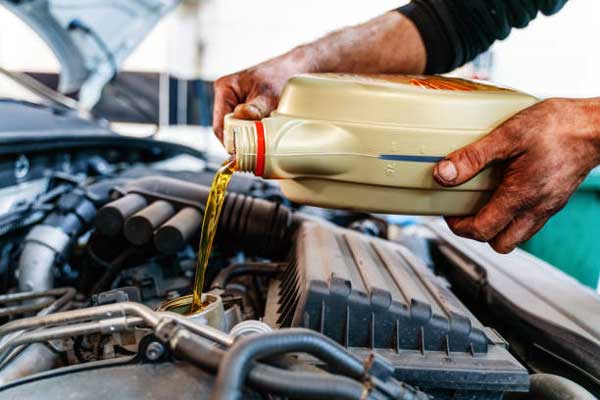
Most car manufacturers generally recommend an oil change interval of around 7,500 miles or 6 months, whichever comes first. However, some newer cars can go longer between oil changes, up to 10,000 miles or 12 months.
It is always best to consult your vehicle’s owner manual for the manufacturer’s recommended oil change interval for your specific make and model.
If you’re dealing with a burning oil smell in your car, you may also be interested in our articles on why your car smells like fish or why your car smells like burning oil when the heater is on. Our article on why your car smells like fish discusses the common causes of this odor, such as a leaking heater core, mold or bacteria growth in the AC system, or a dead rodent trapped in the engine compartment. Meanwhile, our article on why your car smells like burning oil when the heater is on explains the possible causes of this smell, such as a leaking valve cover gasket, a damaged or worn-out oil pan, or a malfunctioning PCV valve. If you’re experiencing any of these smells in your car, our articles can help you diagnose and fix the problem.Frequently Asked Questions
Let’s give answers to some questions people also ask about the burning oil smell.
Because oil is getting onto the manifold and burning. Most times, it burns without any leakage, just emission of a bad smell.
Yes, that’s one of the signs of burning oil. Low oil is an indication of an oil change or top-up.
Emission of awful smell, oil puddle underneath your car as a result of oil leakage, increased fuel consumption.
Conclusion
A burning oil smell in your car can be caused by various issues, some being serious, like oil leaks, and others less serious, like oil consumption. Regardless of the cause, it is important to have your car checked out by a professional mechanic as soon as possible.
This is how you can avoid further damage to the engine and other components. Besides, you can also take preventative measures to avoid the burning oil smell. In the meantime, you can try to minimize the smell by keeping your car well-ventilated and using an air freshener.

